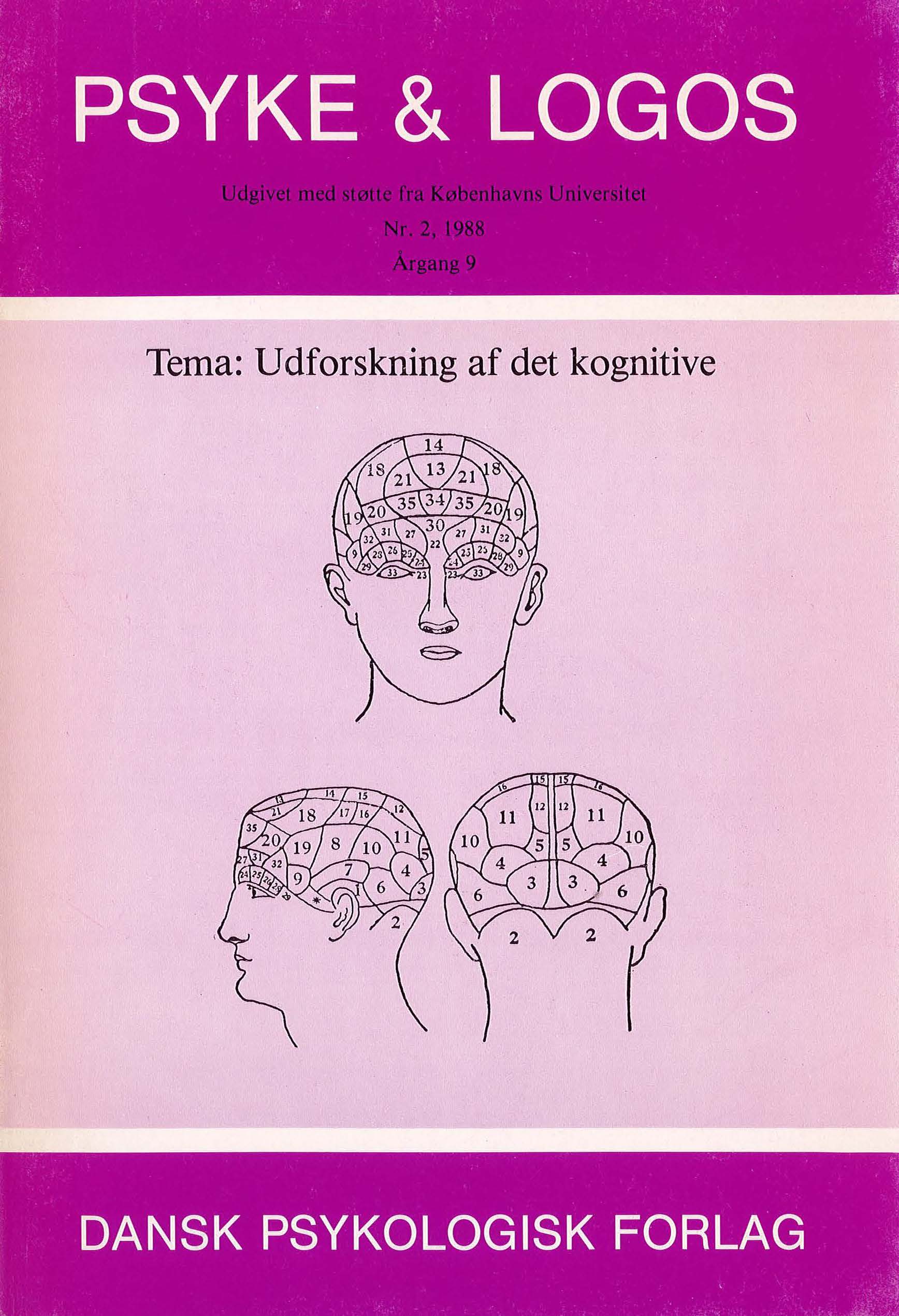Kognitions- og kunstig intelligens-forskning mellem logik og psykologi: et semiotisk synspunkt
DOI:
https://doi.org/10.7146/pl.v9i2.134258Abstract
The article presents a »meta-semiotic« perspective on cognitive science (CS) according to which the foundation of CS should be sought, neither in the psychological investigation of human intelligence nor in the »frankensteinian« construction of an artificial intelligence, but in the investigation of possible cognitive formations. Theoretical research in artificial intelligence would support such an investigation by analyzing the properties of computational models that can simulate these cognitive formations. CS should take a special interest in the biological implementation of cognitive formations (in order to enhance the scientific understanding of the mental faculties), but I propose that it should be done on the background of theoretical research into different
levels of constraints (logical, physical, biological etc.), that can help us recognize the different (natural or artificial) implementations of »intelligence« as realizations of abstract possibilities relating to the reality of signs, tools, and models. The general properties of
signs (as well as the general properties of signifieation and communication), the general properties of tools (as well as abstract machines), and the general properties of models (physical and mental), - is the subject of meta-semiotics. CS is at present confronted by three fundamental problems: 1) to overcome the dichtomy between psychological and logical conceptions of cognition, 2) to reformulate the status of the phenomenal world in theories of cognition (thc status of »naive« and commonsense
theorics), and 3) to restate the conflict between the paradigm of traditional AI and the paradigm of ncural networks as an index of a reel theoretical problem, by formulating possible integrations of discrete and continuous models of symbolic and subsymbolic
processes.
Downloads
Published
How to Cite
Issue
Section
License
Ophavsret er tidsskriftets og forfatternes. Det er gældende praksis, at artikler publiceret i Psyke & Logos, som efterfølgende oversættes til andet sprog, af forfatteren frit kan publiceres i internationale tidsskrifter, dog således at det ved reference fremgår, at den oversatte artikel har et forlæg i en dansksproget version i Psyke & Logos. Artikler kan frit deles og linkes til på forsknings- og undervisningsnetværk (så som Blackboard). Link foretrækkes, fordi det giver oplysning om brug af tidsskriftets artikler.




